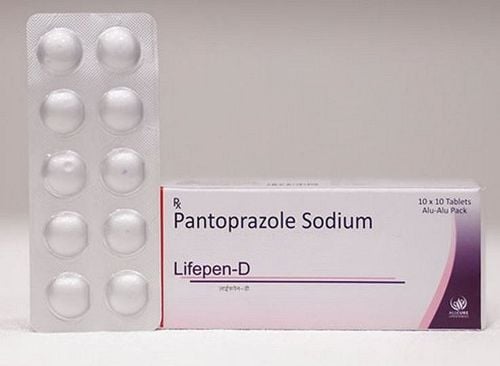This is an automatically translated article.
If not treated promptly and properly, people with Wilson's disease can die or lead to serious complications such as: Liver failure, cirrhosis, kidney damage, depression or destruction of red cells Bridge leads to anemia, jaundice...
1. Is Wilson's disease dangerous?
Wilson's disease is a rare genetic disorder that causes copper to build up in the liver, brain, and several other vital organs of the body.
Copper plays a key role in the development of nerves, bones, collagen and the skin pigment melanin. Copper is absorbed from food and excess copper is excreted by substances produced in the liver (bile).
So is Wilson's disease dangerous? In people with Wilson's disease, copper is not excreted but accumulates, which can even be life-threatening. When diagnosed early, the disease can be well treated and the person can return to a normal life.

Bệnh Wilson là một rối loạn di truyền hiếm gặp
2. Signs of Wilson's disease
Some common signs in Wilson's disease include:
When copper is deposited in the brain, it will cause the patient to have symptoms such as difficulty speaking, salivation, slow writing, ugly, trembling. In more severe cases, there will be spasticity of the arms and legs or psychiatric symptoms such as depression, mental disorders, difficulty swallowing, seizures and strokes. There are emotional and mood disturbances. Many cases of mental impairment tend to progress to psychosis, sometimes with psychotic episodes. In the eye appears Kayser - Fleischer ring of greenish-brown color, around the cornea at the posterior surface of Descemet's membrane. Copper can be deposited in the sclera and vitreous. Copper deposition in the skin is erratic, the skin appears light brown or light gray. Some symptoms of digestive disorders such as loose stools accompanied by fever, vomiting, loss of appetite, abdominal pain. Bone and joint changes, osteomalacia-like calcium loss, bone pitting makes bones easy to break; Endocrine disorders with autonomic dysfunction, hypo or slightly hyperthermia, diabetes or hemolysis are very dangerous.

Mắt xuất hiện vòng xanh nâu quanh giác mạc do mắc bệnh Wilson
3. Complications of Wilson's Disease
If not treated promptly and properly, the patient can die. Potential Wilson's disease complications include:
Liver failure : Usually comes on suddenly or develops slowly over many years. Nervous problems: Symptoms such as tremors, uncontrolled muscle movements, gait changes, and difficulty speaking Kidney problems: Wilson's disease can damage the kidneys, leading to problems such as: kidney stones and increased amounts of amino acids excreted in the urine. Scarring of the liver (cirrhosis): As liver cells try to compensate for the damage caused by accumulated excess copper, scar tissue is formed in the liver, making it difficult for the liver to function properly. Psychological problems: Personality changes, depression, irritability.... Circulatory system: Destroys red blood cells leading to anemia, jaundice. Currently, it is not possible to prevent Wilson's disease because it is an inherited disease, passed from father to mother to children. However, it is possible to slow the onset of the disease or slow the progression of symptoms.













